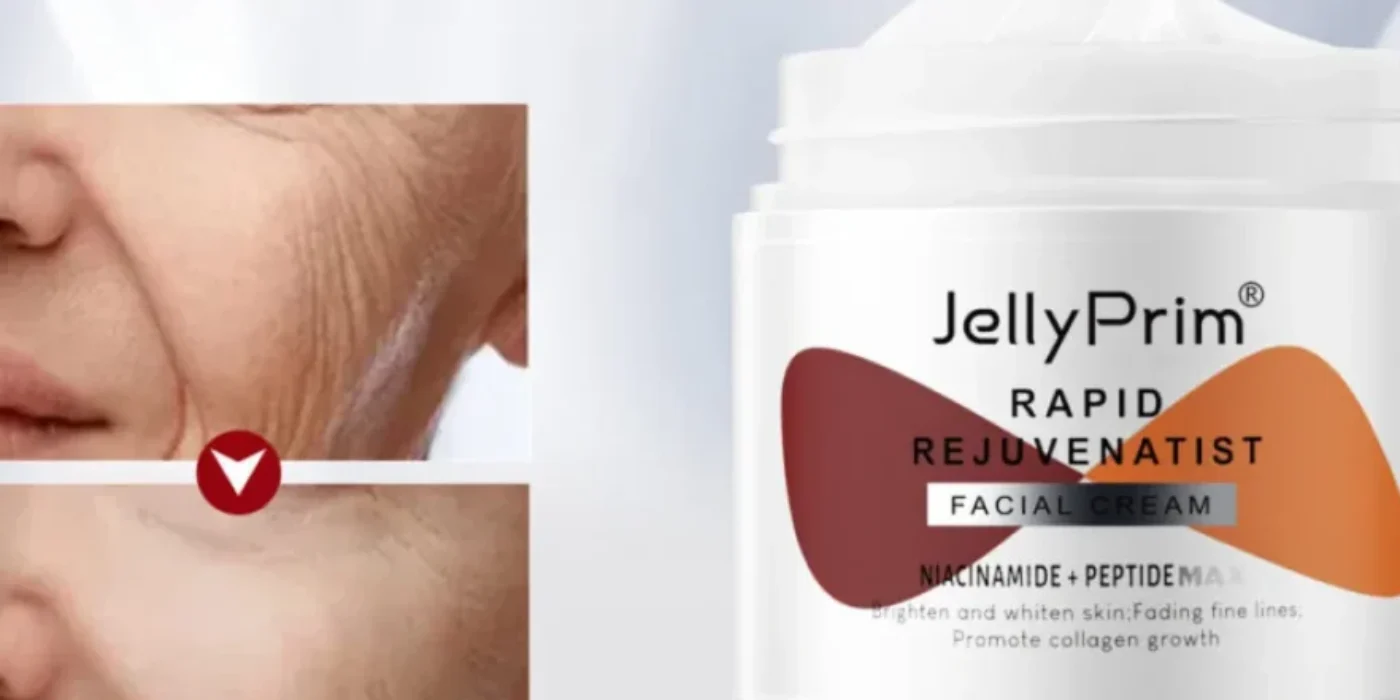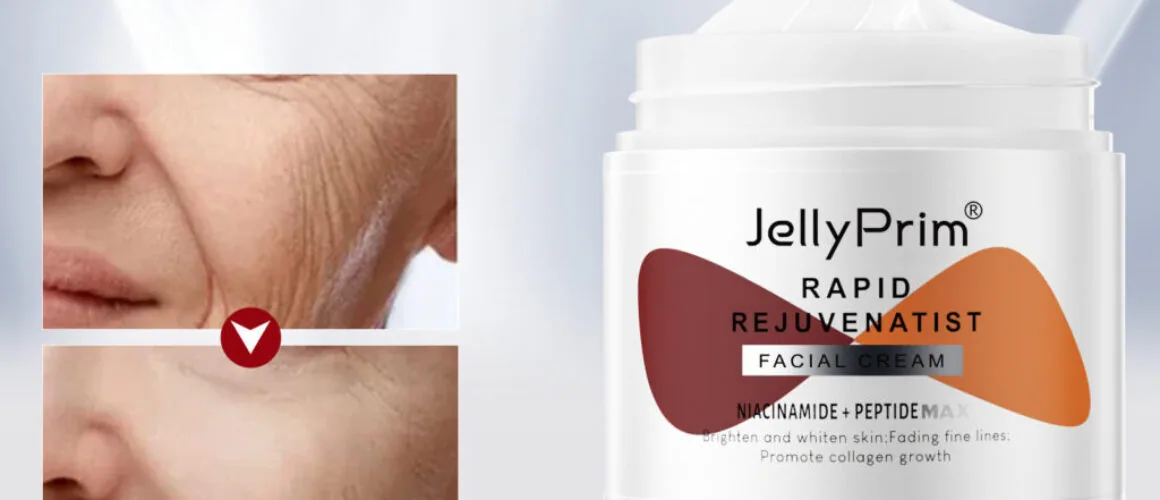How Does Hyaluronic Acid Make You Look Younger
How Does Hyaluronic Acid Make You Look Younger? The Secret to Ageless, Glowing Skin
Aging gracefully is a goal for many, but let’s be honest—we all wouldn’t mind hitting the pause button on wrinkles, fine lines, and sagging skin. The skincare world is buzzing about Hyaluronic Acid (HA), and for good reason. But how does hyaluronic acid make you look younger? That’s exactly what we’re going to uncover today.
In this comprehensive guide, you’ll learn how HA works its magic, why it’s a must-have in your skincare routine, and how to maximize its age-defying benefits.
What is Hyaluronic Acid?
Let’s start with the basics. Hyaluronic Acid is a naturally occurring molecule found in your skin, eyes, and connective tissues. It’s renowned for its incredible water-binding ability, holding up to 1,000 times its weight in water. Imagine it as a microscopic sponge soaking up hydration, keeping your skin plump and youthful.
However, as we age, the body’s production of hyaluronic acid declines. This drop leads to dehydrated skin, which accelerates the appearance of wrinkles and fine lines. That’s where topical HA serums step in.
How Does Hyaluronic Acid Make You Look Younger?
1. Deep Hydration = Instant Plumping Effect
One of the fastest ways to look younger is to hydrate your skin properly. Hyaluronic acid penetrates deep into the skin layers, infusing them with moisture. This hydration expands skin cells, smoothing out fine lines almost instantly.
Think of a raisin turning back into a grape—that’s how HA makes your skin appear plumper and more youthful.
2. Enhancing Skin Elasticity Over Time
Regular use of HA helps improve your skin’s elasticity. Elastic skin snaps back after being stretched. However, as collagen and HA decrease with age, skin starts to sag. By replenishing hyaluronic acid levels, your skin becomes more resilient and firm, reducing sagging and droopiness.
3. Strengthening the Skin Barrier
A healthy, robust skin barrier locks in moisture and shields your skin from environmental aggressors like pollution, UV rays, and free radicals. HA helps fortify this barrier, making your skin less prone to irritation, redness, and premature aging.
4. Boosting Collagen Synthesis (Indirectly)
While hyaluronic acid doesn’t directly stimulate collagen production, its hydrating properties create an ideal environment for collagen to thrive. Plump, hydrated skin is better equipped to maintain its structure, enhancing collagen’s natural effects.
Why Dehydration is the Fast-Track to Looking Older
Dehydrated skin is dull, rough, and lined—making you look older than you really are. The lack of moisture causes skin to lose volume, leading to fine lines, especially around the eyes, mouth, and forehead.
Hyaluronic acid combats this by attracting moisture from the environment and deeper skin layers, giving you that youthful, dewy glow.
The Science Behind Hyaluronic Acid’s Youthful Glow
Let’s get a little technical. HA is a humectant, meaning it draws water to the skin’s surface. But modern formulations use multi-molecular hyaluronic acid—this means the serum contains molecules of various sizes.
- High molecular weight HA sits on the skin’s surface, delivering immediate hydration.
- Low molecular weight HA penetrates deeper, hydrating the inner layers.
This multi-level hydration process visibly reduces wrinkle depth, smooths rough textures, and enhances overall skin luminosity.
The Right Way to Use Hyaluronic Acid for Anti-Aging
It’s not enough to slap on a serum and hope for miracles. To maximize its youthful benefits, you need to apply HA correctly.
Step-by-Step Application Guide:
- Cleanse your face thoroughly.
- While your skin is slightly damp, apply a few drops of hyaluronic acid serum.
- Gently press the serum into your skin—don’t rub!
- Immediately follow up with a moisturizer to seal in the hydration.
- Finish with sunscreen (SPF 30 or higher) if it’s your morning routine.
Common Mistakes That Can Sabotage Your Results
1. Applying on Dry Skin
Hyaluronic acid needs moisture to pull into your skin. If applied to dry skin in a dry environment, it might pull moisture from within, making your skin drier.
2. Not Locking It In with Moisturizer
Without a sealing layer, HA’s moisture-retention abilities are compromised. Always follow up with a cream or lotion.
3. Overusing It
More product doesn’t mean faster results. A little goes a long way. Stick to 2-3 drops per application.
Visible Benefits Timeline: How Soon Will You Look Younger?
- Immediate (Within Minutes): Skin feels softer, plumper, and smoother.
- First Week: Fine lines start appearing less pronounced, and your complexion looks more radiant.
- 4-6 Weeks: Consistent use leads to noticeable improvements in elasticity, tone, and texture.
- 3+ Months: Deeper wrinkles begin to soften; skin appears firmer and more youthful overall.
Who Should Use Hyaluronic Acid for Anti-Aging?
The beauty of HA is that it suits all skin types. Whether you have dry, oily, combination, or sensitive skin, you can benefit from its hydrating properties. Even those in their 20s can start using it as a preventative measure to slow down early signs of aging.
Hyaluronic Acid Combos That Amplify Youthful Effects
For maximum anti-aging power, pair HA with:
- Vitamin C: Brightens complexion and boosts collagen production.
- Peptides: Helps repair damaged skin cells.
- Ceramides: Strengthens the skin barrier.
- Retinol: Speeds up skin cell turnover (apply retinol first, then HA).
These ingredient synergies can dramatically improve wrinkle depth and skin texture over time.
Are There Any Side Effects of Hyaluronic Acid?
Hyaluronic acid is one of the most skin-friendly ingredients out there. Side effects are extremely rare but can include:
- Mild irritation (if used in a very dry environment without moisturizer)
- Reactions to other harsh ingredients in poorly formulated serums
Pro Tip: Always do a patch test before applying a new product to your face.
Debunking Common Myths About Hyaluronic Acid
“It’s Harsh on Sensitive Skin”
False! HA is naturally found in your skin, making it incredibly gentle and safe, even for sensitive types.
“It Replaces the Need for Moisturizer”
Not quite. HA pulls in water, but it still needs a moisturizer to lock it in place.
“It Only Benefits Dry Skin”
Completely wrong. Oily skin can also be dehydrated. HA helps balance oil production by providing the right hydration levels.
Natural Ways to Support Hyaluronic Acid Production
While topical serums are great, there are lifestyle tweaks that can help boost your skin’s natural HA production:
- Eat hydrating foods: Think cucumbers, watermelon, and leafy greens.
- Take Hyaluronic Acid supplements: Oral supplements can support skin hydration from within.
- Protect your skin from sun damage: Always wear SPF, as UV rays break down HA in the skin.
- Stay hydrated: Drink plenty of water daily to give your skin cells the moisture they need.
Conclusion: Hyaluronic Acid is Your Youthful Skin’s Best Ally
So, how does hyaluronic acid make you look younger? Simple—by deeply hydrating your skin, improving elasticity, protecting your skin barrier, and creating an environment where your skin can thrive. It’s like a youth elixir in a bottle, offering both immediate and long-term results.
Adding hyaluronic acid to your skincare routine is an easy, effective step toward smoother, firmer, and glowier skin. Consistency is key. With daily use, you’ll start noticing that your reflection in the mirror looks fresher, bouncier, and yes—younger.
Frequently Asked Questions (FAQs)
1. Can hyaluronic acid reduce wrinkles permanently?
HA won’t “erase” wrinkles forever, but with consistent use, it significantly minimizes their appearance. It works best as a continuous part of your skincare routine.
2. Is hyaluronic acid safe for sensitive skin?
Absolutely! It’s gentle, non-irritating, and suitable for sensitive skin types. Just make sure to check for any added fragrances or harsh chemicals in the product.
3. Can I use hyaluronic acid with retinol?
Yes, and you should! Apply retinol first, wait a few minutes, and then apply HA serum to hydrate and soothe the skin.
4. How often should I use hyaluronic acid serum?
Twice a day—morning and evening—for optimal results. Always apply it on slightly damp skin followed by a moisturizer.
5. Does drinking water have the same effect as applying HA topically?
Drinking water is essential for overall health and skin hydration from within, but topical HA provides direct hydration to the skin’s outer layers where aging signs are most visible.


